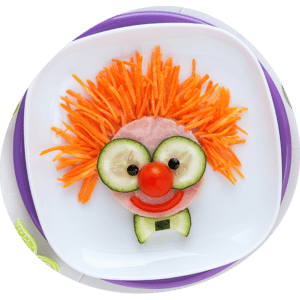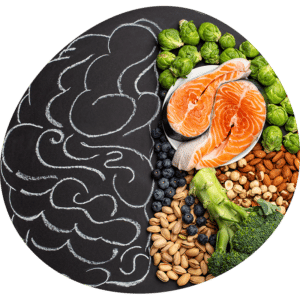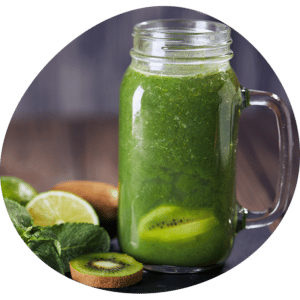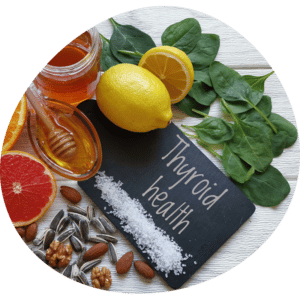Worried that your child is not handling dairy? Dairy intolerance is one of the most common health challenges for kids. While some people will ‘grow out’ of their intolerance, it’s important to tackle this issue before it causes further health concerns.
Let’s take a look at how dairy intolerance may affect your kids and what you can do about it.
Does my child have dairy intolerance?
The first thing to understand is that there isn’t just one type of intolerance. There are two types to look out for: lactose and casein. When we think about a problem with dairy, lactose is the first to mind for many, but casein can be problematic for some kids as well.
Lactose intolerance
Lactose is the sugar that is found in dairy products. An intolerance is caused by an insufficient amount of the lactose-digesting enzyme, lactase. As a result, the lactose is not broken down for absorption and instead, it ferments in the digestive tract.
When we have an intolerance to lactose, it’s easy enough to spot because the symptoms come on quite quickly after consuming dairy. Symptoms are more severe when more is consumed in a single sitting. You’ll see:
- Diarrhoea
- Bloating
- Tummy pains and cramps
- Increased gas
- Nausea and potential vomiting
Lactose intolerance is common in those of African, Asian, Hispanic and American Indian descent, as well as those who were born prematurely or have underlying gut health conditions. The good news is that the symptoms are easy to eliminate by removing all sources of lactose from the diet.
Casein intolerance
The lesser-known intolerance is casein. If your child has a problem with casein, the symptoms may be harder to spot, as it doesn’t have the sudden onset that lactose has. It can cause digestive symptoms like lactose, but it also tends to cause more body-wide symptoms such as headaches, joint pains, mood issues and fatigue.
Like lactose, the dose can make a difference if you have a casein intolerance. The type of casein can also play a part. Some children will improve when they are switched over to A2 dairy options such as goat and sheep-based products or Guernsey/Jersey cow-based products.
Keep in mind that this is different to casein allergy!
Casein or dairy protein allergy can cause allergic symptoms such as hives, rashes, swollen lips, mouth and/or tongue, runny nose and watery, itchy eyes.
If the allergy is severe, it can even lead to anaphylaxis, which is a life-threatening reaction. This must be taken seriously with a strictly casein-free diet.
Health concerns that are linked to dairy intolerance
Dairy issues can play a role in many common symptoms and health conditions in children. Some of the most common links include:
- Asthma and eczema
- Recurrent croup
- Recurrent ear infections
- Enlarged tonsils and/or adenoids
- Gut-related symptoms, including constipation, diarrhoea, bloating, gas and pain
- Autism, ADHD and related conditions – a casein-free diet has been found to be beneficial at relieving symptoms in some with neuro-developmental conditions, although the findings are mixed
Now that doesn’t mean that dairy is always to blame, or that it’s the only factor playing a part. Most of these conditions are multi-factorial – meaning there are multiple contributors to the problem. But if your child is experiencing one or more of these, it means we need to look at whether dairy is involved.
Of course, one of the greatest concerns parents have with dairy intolerance is whether their child can get enough calcium without it. Looking for some tips on dairy-free calcium options? Stay tuned for an upcoming blog post where I will share my favourite dairy-free calcium sources.
Can you test for dairy intolerance and allergies?
Unfortunately, identifying whether your child is intolerant to dairy is not always easy. Lactose intolerance can be investigated by a breath test or a stool sample. However, it is often diagnosed by linking the consumption of lactose to your child’s symptoms, as well as ruling out other potential causes.
Casein intolerance is more difficult to identify. That is why the best approach is to work with a healthcare professional who can support you through a structured elimination protocol and see whether your child improves throughout the protocol.
On the other hand, a dairy allergy is easy to test for. Your GP can arrange for this to be tested for you.
Not sure if your child has an intolerance?
It’s not easy to navigate the waters of food intolerances. But if they have health concerns and symptoms that are worrying you, now is the time to act.
As an experienced paediatric naturopath, I’m here to help. Click here to learn more about the children’s health issues I work with.
Share this Blog
If you enjoyed this article share it across your socials









